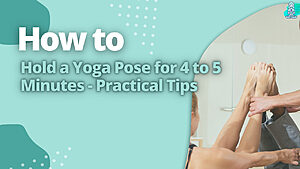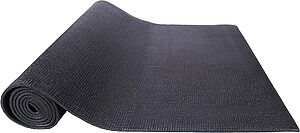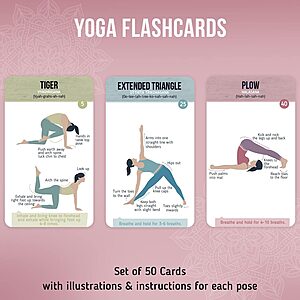It’s a question that has been debated for decades: should we bathe after yoga? Some people believe that taking a bath after yoga is unnecessary and can do more harm than good.
However, others feel that taking a post-yoga bath is essential if you want to reap the benefits of your practice.
Looking to find out if you should be taking a post-yoga bath? We’ve got all the details on whether or not it’s necessary (and beneficial) for you.
Key Takeaways
- There is no scientific evidence to support the claim that bathing after yoga helps remove toxins from the body.
- There is no medical reason to bathe after yoga.
- Bathing after yoga may interfere with the body’s natural process of detoxification.
- Bathing after yoga may cause dehydration and electrolyte imbalance.
- If you choose to bathe after yoga, it is important to drink plenty of water and rehydrate afterward.

Here’s The Answer To Should We Bath After Yoga
The answer is yes; taking a bath after yoga is necessary. Taking a bath after yoga will help you to relax and unwind. It can also help you to detoxify your body.
Remember, though, that there is no evidence to back up the assertion that taking a bath after yoga helps the body flush out toxins.
If you bathe after yoga, drink plenty of water and rehydrate yourself afterward.
Unless you have a medical reason to bathe after yoga, there is no reason to do so. Bathing after yoga may interfere with the body’s natural process of detoxification.
There Are Many Opinions On Whether Or Not You Should Take A Bath After Yoga
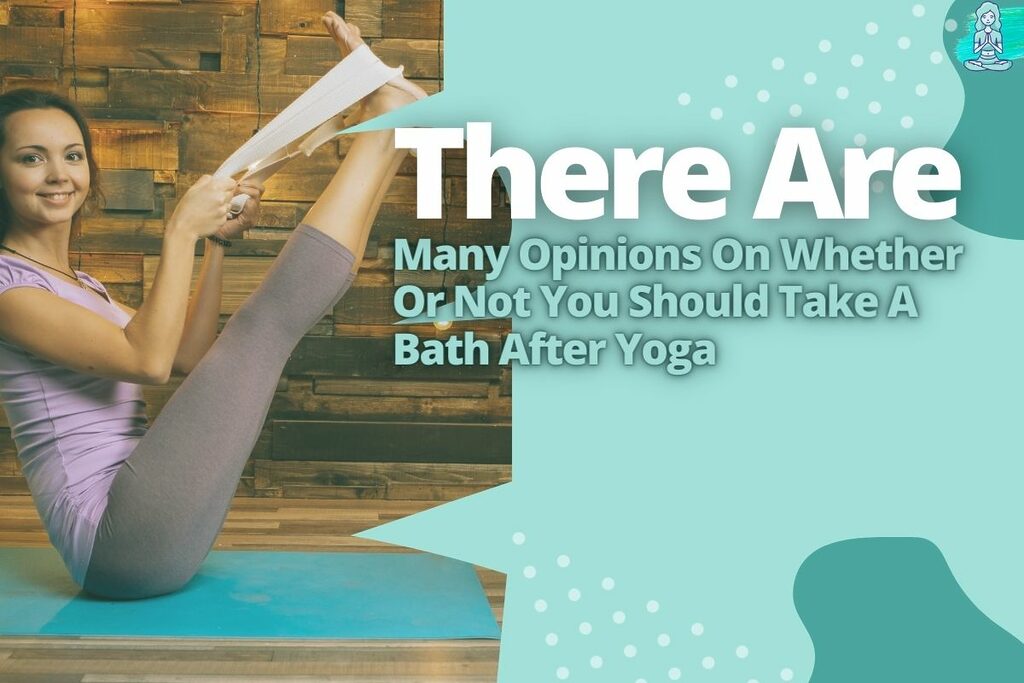
When you finish practicing yoga, there are many opinions on whether or not you should take a bath. Some believe it helps detoxify the body and remove any toxins that may have been released during the practice.
Others contend that bathing right after yoga is ineffective since it can raise body temperature and cause you to perspire more.
In my opinion, there’s no need to worry about sweating after practice if you’re doing all the right things (like drinking plenty of water).
If anything, taking a warm shower or bath will make you feel more relaxed after working out—and sometimes, when stressed out, we tend not to work out as much as we should. So my advice? Go ahead and grab yourself some Epsom salts and go for it.
People Believe That It Helps To Detoxify The Body And Remove Any Toxins
Some people believe that a shower after yoga is good for the body. But suppose you’re like me and care about your liver. In that case, you may have wondered if it’s really necessary to bathe after practicing.
Our body’s largest organ is the skin, so it makes sense that some people think doing something like sweating during exercise or working up a good sweat at yoga class would cause toxins to be released through our skin and need help getting out of us.
However, this isn’t true! The liver does all of its detoxifying on its own. Sweating during exercise isn’t considered a toxin either; it’s just water vapor from your body cooling down from being hot from exertion or heat exposure (like being outside!).
Others Believe That It Is Unnecessary And That Simply Showering After Yoga Is Sufficient
Some people believe that it is unnecessary to take a bath after yoga. They think that simply showering after yoga is sufficient enough.
Some claim they have other things to do, like work or eating, and don’t want to squander their time and energy taking baths.
As for me, I think it’s fine if you just want to take a shower instead of having a bath after your practice.
However, if you feel like taking a bath would help relax your muscles and calm your mind more than just washing off the sweat with water alone, go ahead.
Make Sure That The Water Is Not Too Hot As This Can Be Dehydrating
After yoga, it’s crucial to make sure the water isn’t too hot because this will dehydrate you.
Hot water can cause dehydration and muscle soreness; it can also result in inflammation and even skin infections if your skin isn’t used to being exposed to high temperatures.
You May Also Want To Add Some Soothing Aromatherapy
If you want a bath to soothe, relax, and unwind after yoga, then lavender oil is a natural choice. It’s a great way to help you slow down and relax after a busy day or week.
Consider adding some lavender essential oil if you’d like to use some aromatherapy in your bathtub.
Using this infused water in the tub after yoga practice will help with muscle pain and soreness by relaxing tense muscles and boosting moods by releasing endorphins that are responsible for euphoria (which makes us feel good).
Lavender helps heal wounds faster too.
Ultimately, The Decision Of Whether Or Not To Take A Post Yoga Bath Is Up To You.
Ultimately, whether or not to take a post-yoga bath is up to you and what you feel will work best for your body.
One person’s solution might not be suitable for another. For example, someone with sensitive skin might want to avoid a hot shower immediately after practicing yoga because it could irritate them.
Alternatively, suppose that same person enjoys being cleansed after working up a sweat during practice. In that case, they may choose instead to take an ice-cold shower (or even run cold water on themselves) immediately after their session ends.
Another factor influencing what type of post-yoga regimen works best is how much time is available before bedtime.
Is It Necessary To Take A Bath After Yoga?
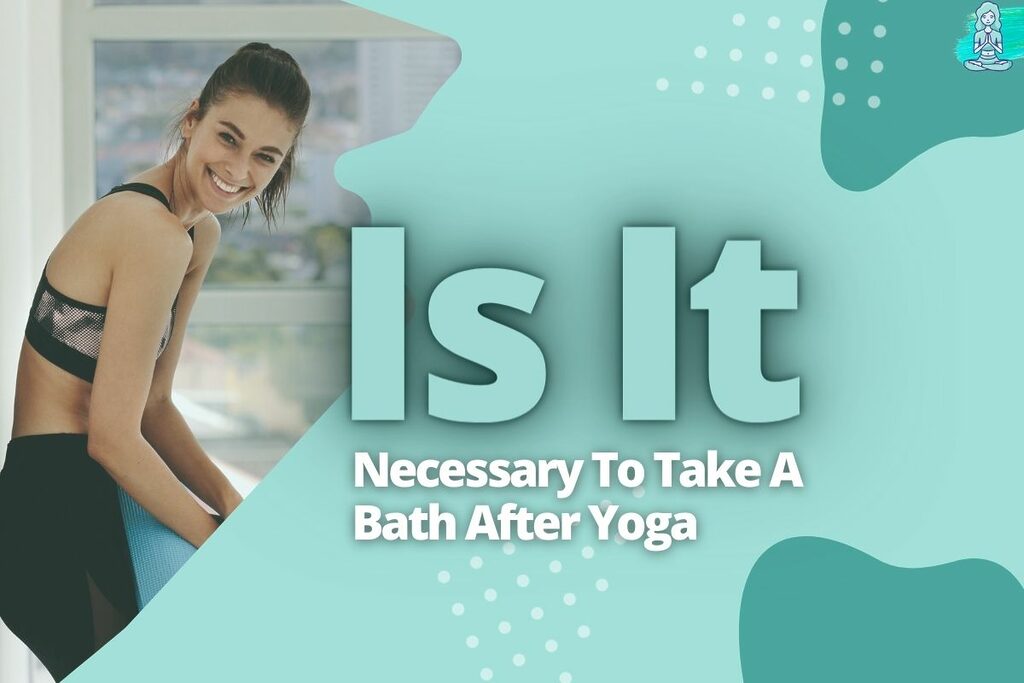
The short answer is yes, taking a bath after yoga is necessary.
Why do you ask? Because you’re going to want to clean off all that sweat and maybe even get rid of some bacteria.
I know what you’re thinking: “But baths are for relaxing!” Right? Wrong! It can be relaxing as well as beneficial if taken properly. Here’s why:
- Taking a bath after yoga helps flush out toxins through your pores. This will leave your skin feeling rejuvenated and refreshed!
- The heat from the water can loosen up any tight muscles that may have been strained while exercising in class today (or whenever). This will ensure that they don’t become sore tomorrow when doing normal activities like walking up stairs or sitting at work without getting massaged by someone else (if possible).
- Baths are great because they give us time alone with our thoughts where we can relax without being distracted by constant notifications coming from our phones or laptops nearby – so think about something else besides how much exercise was involved during today’s session on top of all these benefits too.
What Are The Benefits Of Taking A Bath After Yoga?
You’re probably wondering, “What are the benefits of taking a bath after yoga?” Well, here’s what you need to know.
- A relaxing bath helps to cleanse and detoxify your body.
- Taking a bath helps relieve stress and restore your energy levels.
- It also helps to relieve sore muscles from all that intense yoga practice.
Are There Any Risks Associated With Taking A Bath After Yoga?
Yes, you can take a bath after yoga. But there are risks associated with it. You might wonder: What are the potential dangers of taking a hot shower and then getting into a warm tub?
First, it’s important to realize that excessive heat can dehydrate your body (and we’re not just talking about sweating). Bathtubs and showers also tend to be dirty places—they get contaminated by germs like bacteria and viruses every time you use them.
So when you combine being dehydrated with being exposed to potentially harmful microorganisms in your bathwater (and anywhere else in the world), this could lead to serious health problems.
And even if your bathtub is clean—even if it was sanitized by professionals just this morning—that doesn’t mean that bathing in its waters is necessarily safe for your skin.
Conclusion
Taking a bath after yoga is a personal decision, and there are many different opinions on whether or not it is necessary.
You must ultimately choose what suits you and your body the best. If you choose to take an after-yoga bath, it is important to ensure that the water isn’t too hot, as this can dehydrate.
You may also want to add some soothing aromatherapy or add a few drops of lavender oil into your tub so that it feels more like a spa experience than just another shower after class.
Frequently Asked Questions
Is it okay to leave yoga class and go straight to work?
It is up to the individual whether or not they feel comfortable taking a hot shower and then getting into a warm tub. However, it might be easier for some people to first drink water or have some light snacks beforehand so that their stomach is empty and their body doesn’t shock when entering such high temperatures.
I don’t have time for a shower. Can I just skip it?
Yes, you can skip the shower if you feel like it. However, dehydration is a very real and dangerous risk you should be aware of. If possible, drink plenty of water before class and rehydrate afterward with either juice or water.
Will I stink if I don’t shower after yoga?
Some people might smell slightly different after a yoga class, but it is usually not unbearable. Suppose you feel like your body smells bad or start experiencing rash symptoms. In that case, it might be best to shower before doing anything else.
Is there any reason why I should shower after yoga class?
You might wish to take a shower after your yoga lesson for the following reasons:
Taking a hot shower can help to warm up your body and reduce any muscle stiffness.
Showers often have higher water temperatures than baths which can be quite refreshing for the skin.
Many people find their mood improves after cleansing their bodies and relaxing in a spa-like atmosphere.
My name is Mugen Seki, and I’m a painter and yoga enthusiast who is passionate about bringing together art and exercise in ways that help people connect with their inner selves. When I’m not painting, I’m practicing yoga. And when I’m not doing either of those things, I’m usually thinking about them.
- How to Hold a Yoga Pose for 4 to 5 Minutes – Practical Tips
- A Guide to Finding the Perfect Yoga Mat for Carpet Floors
- Can You Add Yoga To Fitbit Luxe (Unlock the Power)
- Can You Add Yoga To Garmin Vivoactive (Yoga On The Go)
- Is Aerial Yoga Dangerous (The Scary Truth)
- What Is The Weight Limit For Aerial Yoga (Exploring The Possibilities)


